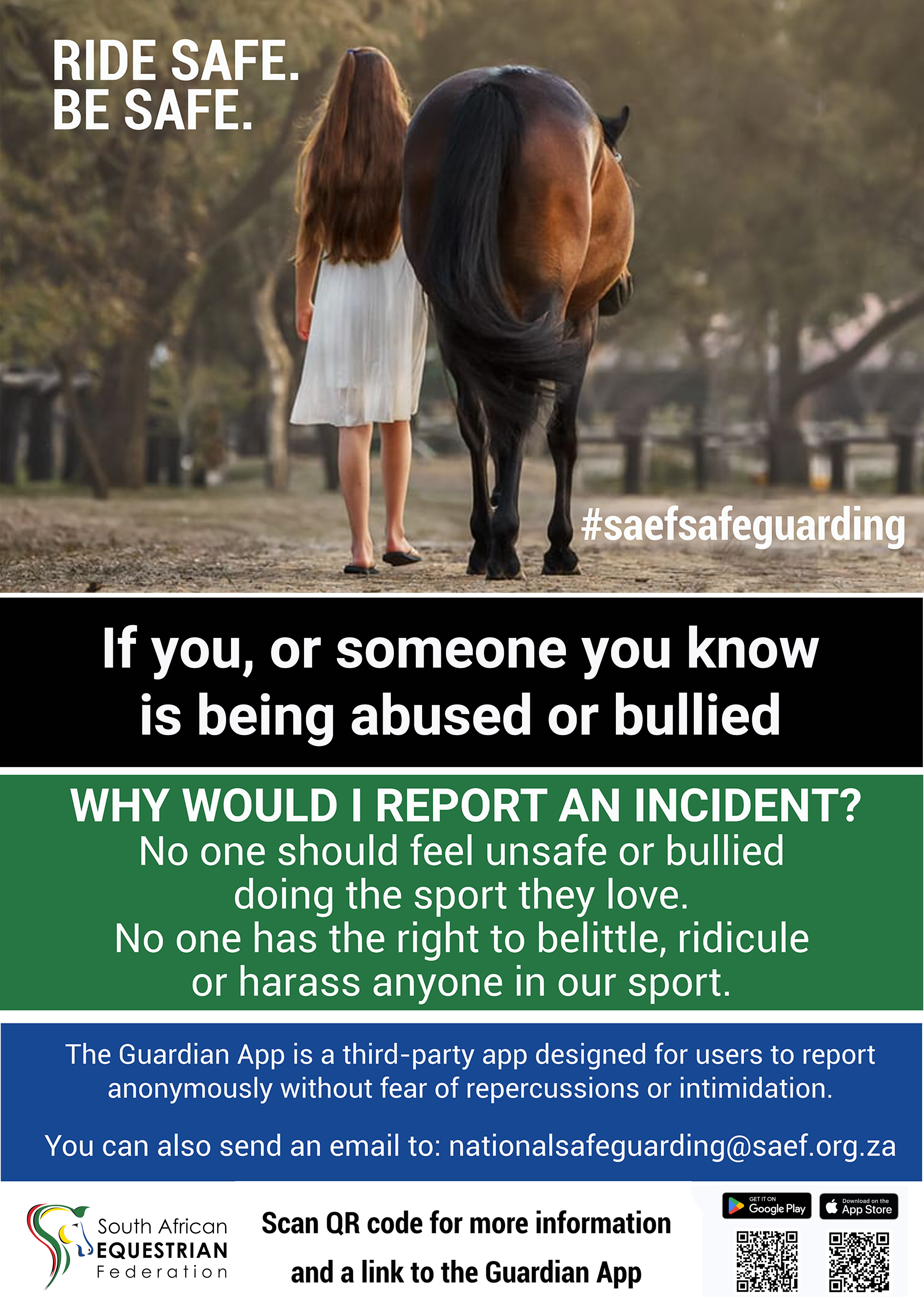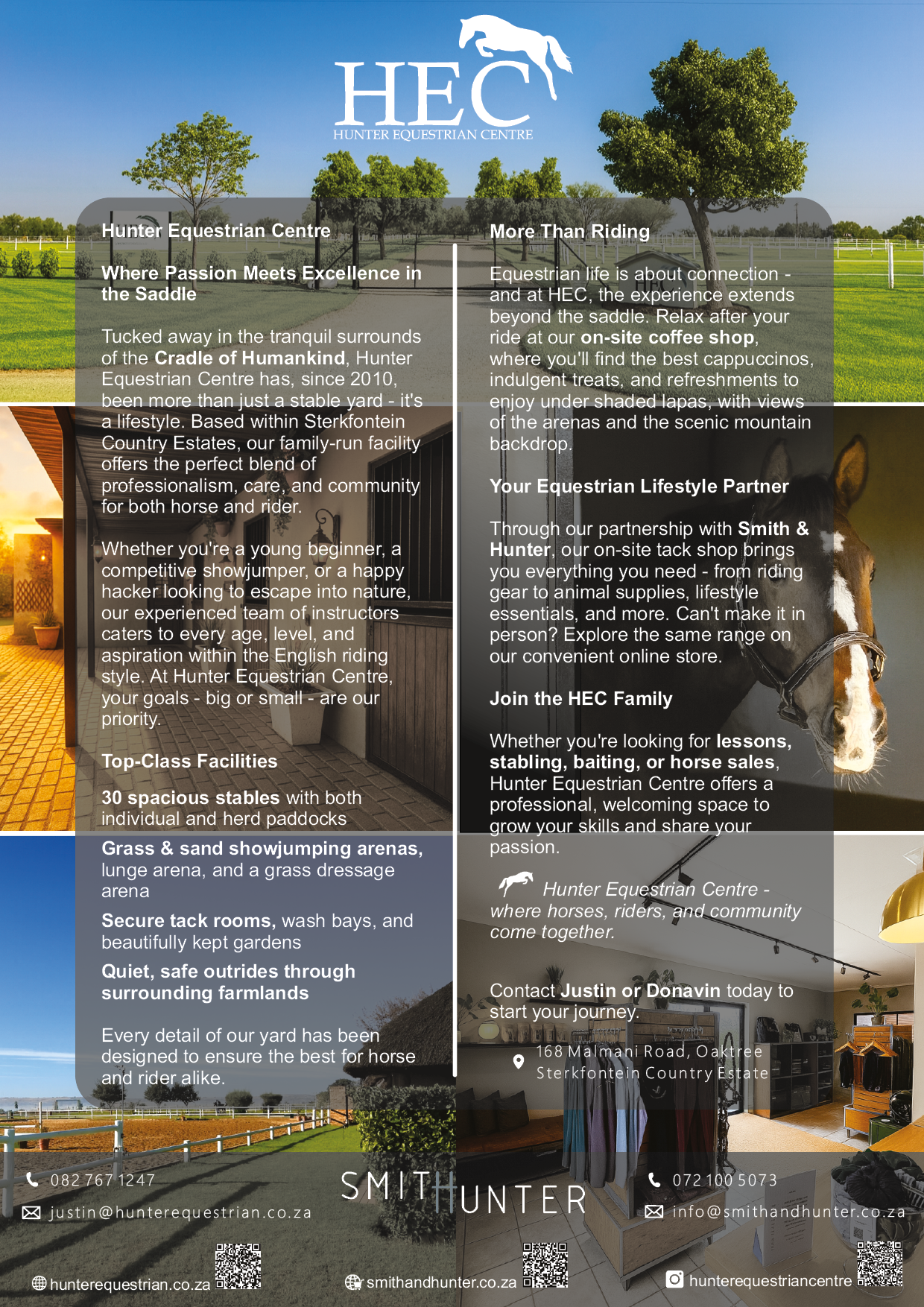Fake It Til You Make It
Many high achievers share a dirty little secret… deep down, they feel like frauds and that their accomplishments are purely due to luck. This doesn’t only apply to intelligence and work achievements however – it extends to relationships, parenting and hobbies. It could even surface in your riding career.
Imposter Syndrome refers to the internal belief that you are not as competent as others perceive you to be. Sufferers (for lack of a better word considering it is fairly harmful to oneself) feel inadequate and incompetent, despite evidence indicating that you are skilled and successful and live with the notion that those around them will “find them out” at some point.
An expert on the subject, Dr Valerie Young, has categorised Imposter Syndrome into sub-groups which builds on decades of research on studying fraudulent feelings amongst high achievers. Her research established 5 main ‘competence types’ or internal rules which people tend to follow which are helpful for identifying habits or patterns which may hold people back from reaching their full potential. These include:
- The Perfectionist
Perfectionism and Imposter Syndrome often go hand-in-hand. Perfectionists tend to set excessively high goals for themselves and when they fail to achieve it, they experience major self-doubt and worry. They tend to be control freaks and micromanagers who feel that if they want something done right, they have to do it themselves. They battle to delegate and often feel like work needs to be 100% perfect 100% of the time.
Success is rarely satisfying for the perfectionist as they always feel like they could have done better which is neither healthy nor productive. Perfectionists need to learn to celebrate their achievements and cultivate self-confidence, learn to take mistakes in their stride and force themselves to stop putting off projects while waiting for the “perfect time”.
- The Superwoman/man
People who experience Imposter Syndrome feel like fakes amongst their real-deal colleagues and often push themselves to work harder and harder in an attempt to measure up. Overworking is however often a cover up for their insecurities. They put in longer hours, battle to relax and enjoy downtime, sacrifice their hobbies and passions for work and feel like they continuously need to prove their worth.
Imposter workaholics are addicted to the validation that comes from working, not the work itself. Superwomen/men need to start training themselves away from the need for external validation whilst also learning to take constructive criticism in the manner in which it was intended as opposed to assuming it’s personal.
- The Natural Genius
People with this competence type believe they need to be a natural “genius” and judge their competence based on ease and speed as opposed to their efforts. Essentially, if it takes them a long time to master something, they feel shame. Like Perfectionists, they set their internal bar impossibly high, but they don’t just judge themselves based on these ridiculous expectations, they also judge themselves on getting things right on the first attempt.
These “imposters” are used to excelling without much effort and tend to have a proven track record of “Straight A’s” or being referred to as the “clever one”. When they are faced with a setback however, their confidence tends to take a tumble as not performing well provokes a sense of shame. To move past this, Natural Genius’ need to see themselves as a work in progress and that accomplishments involve attaining lifelong learning and skill building. Instead of beating oneself up over not achieving impossibly high standards, Natural Genius’ need to identify changeable behaviours that can be improved over time.
- The Soloist
Soloists refer to sufferers who feel as though asking for help reveals their “phoniness”. Whilst being independent is ok, refusing assistance so that you can prove your worth is unhealthy. Soloists firmly believe they need to accomplish things on their own and refuse to accept anyone’s help.
- The Expert
Experts measure their competence based on what and how much they know or can do. Believing they will never know ‘enough’, they fear being exposed as inexperienced or unknowledgeable. Hey shy away from any job applications unless they meet every single educational requirement and constantly seek training or certifications as they feel improving their skills is necessary in order to succeed.
There is some truth in the fact that there is always more to learn and bulking up your skill set will almost always be beneficial professionally, but if taken too far, they endless desire to upskill is actually a form of procrastination. Experts should rather focus on acquiring skills as and when needed (ie when job role or responsibilities change) as opposed to the false comfort of hoarding knowledge.
No matter the profile, if any of these are sounding familiar – do not feel alone. Some studies suggest that more than 70% of people will experience imposter syndrome at some point in their career. If you can learn to identify characteristics within yourself, you’re better positioned to take corrective action
According to the Harvard Business Review, ways in which mitigate the negative effects of Imposter syndrome include:
• Recognise imposter feelings when they emerge. Awareness is the first step to change, so ensure you track these thoughts: what they are and when they emerge.
• Rewrite your mental programmes. Instead of telling yourself they are going to find you out or that you don’t deserve success, remind yourself that it’s normal not to know everything and that you will find out more as you progress.
• Talk about your feelings. There may be others who feel like imposters too – it’s better to have an open dialogue rather than harbour negative thoughts alone
• Consider the context. Most people will have experience moments or occasions where they don’t feel 100% confident. There may be times when you feel out of your depth and self-doubt can be a normal reaction. If you catch yourself thinking that you are useless, reframe it: “the fact that I feel useless right now does not mean that I really am.”
• Reframe failure as a learning opportunity. Find out the lessons and use them constructively in future. This is a critical lesson for everyone.
• Be kind to yourself. Remember that you are entitled to make small mistakes occasionally and forgive yourself. Don’t forget to reward yourself for getting the big things right.
• Seek support. Everyone needs help: recognise that you can seek assistance and that you don’t have to do everything alone. This will give you a good reality check and help you talk things through.
• Visualise your success. Keep your eye on the outcome – completing the task or making the presentation, which will keep you focused and calm.
Content Credit: themuse.com / Harvard Business Review (2008)

















